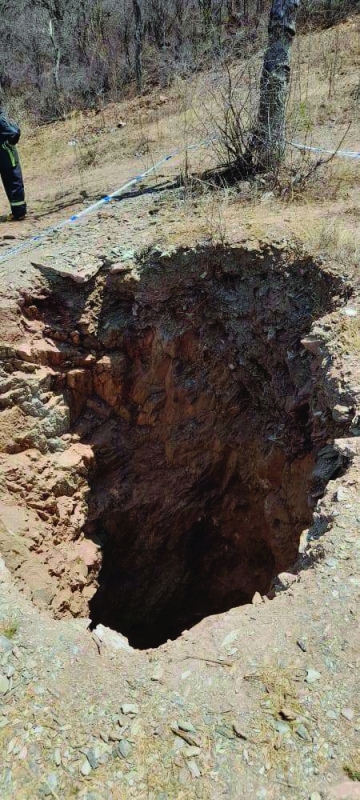‘Illegal gold miners continue to pose danger’
Lesedi Mkhutshwa | Monday June 10, 2024 06:00


Over 130 culprits from the same country have being arrested and appeared before court since last year. In an interview, North East District Council (NEDC) chairman, Kudzani Tobokwani, said illegal gold mining has become a pain in the neck for many. He stated that the majority of residents in the impacted areas, of Patayamatebele, Matsiloje, Mambo and Sechele, have been living in constant fear due to the illegal miners and the open pits left behind by illicit gold miners. According to Tobokwani, the illegal miners leave the pits open after they have dug in search of gold. “Some farmers have given up on their fields out of fear. The same offenders enter their territory with force and begin digging around their fields,' he added. He said the same criminals operate in syndicates as well and that if they discover that one has anything of value, they attack and leave victims empty-handed. In addition, he mentioned that they had heard multiple accounts of animals, including cattle, getting stuck in the same open pits. He also said that while some of the animals sustain injuries, in other cases the damage worsens until the animals die.
Additionally, the NEDC chairman said these incidents negatively affect both arable and pastoral farmers. Reports say illicit gold mining operations have led to land degradation, including altered landscapes from excavation and flooding, as well as a decline in the physical state of the soil on agricultural land. Tobokwani added the illegal mining of gold in their region has long-term effects on the ecosystem, since it contaminates the land, groundwater, and surface water. Additionally, he pointed out that locals are usually harbouring these criminals as tenants in their households. He said some locals even alert the criminals whenever the police raid the villages while others help them transport gold to other nations. According to Tobokwani, the presence of law enforcement agencies, including the police, in the targeted areas has not decreased cases of illegal mining.
Despite the occasional police arrest, NEDC chairman indicated that criminals continue to travel in convoys of thirty or more in search of illicit gold mining. This has demonstrated how profitable and lucrative the black market for illegally mined gold is in Zimbabwe. Late last year when addressing a community meeting, Matsiloje village leader Kgosi Eric Moipolai revealed that illegal gold miners have now shifted from disused gold mines to ploughing fields for their activities. The situation, he warned, has spiralled out of control, with groups of up to 50 illegal miners operating at once, posing a severe safety risk.
“This is very dangerous because such large numbers of people are capable of killing in pursuit of gold,” he bemoaned. In response, minister Douglas Letsholathebe who had called the meeting acknowledged the seriousness of the illegal gold mining problem in Matsiloje and neighbouring regions. He also noted that authorities were grappling with the issue of illegal border crossings between Botswana and Zimbabwe, which is closely connected to illegal gold mining activities. In a recent interview with one of the local publications, Officer Commanding No. 1 District Senior Superintendent Paul Molapisi said the illegal miners target disused old mining areas in the vicinity of the second city. However, Molapisi said out of the 131 culprits arrested, seven illegal miners were charged and given custodial sentences. He said 124 have since been deported back to their country of origin, adding they were continuing to seize various equipment from these illegal miners such as metal detectors, chisels and shovels which are used in this illegal mining operation.
